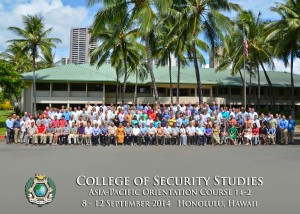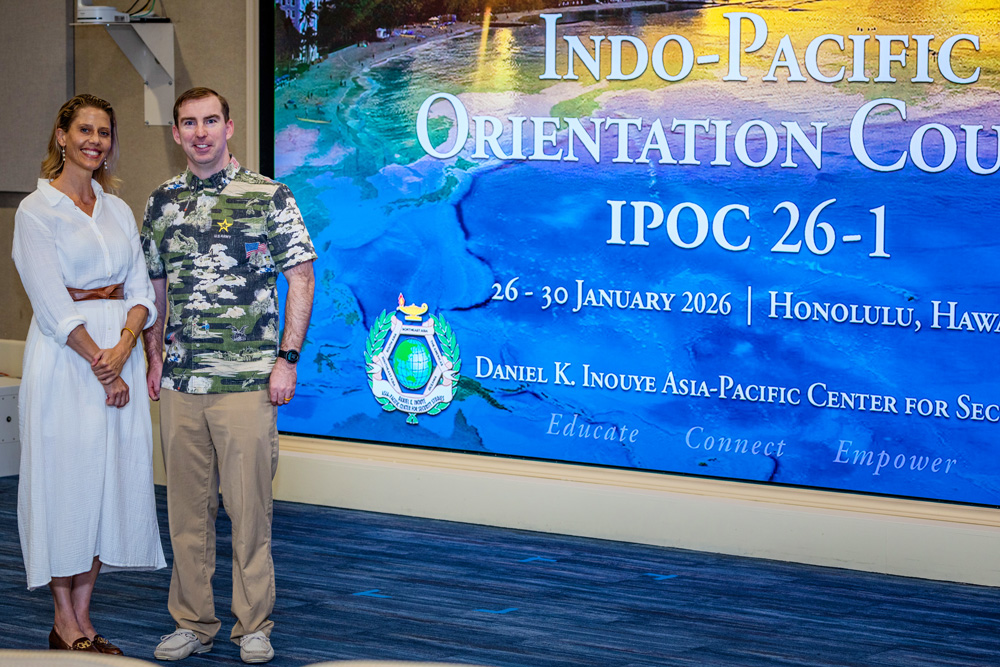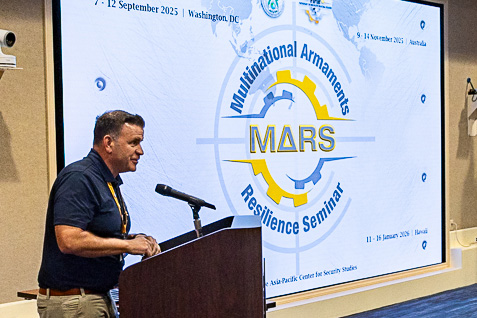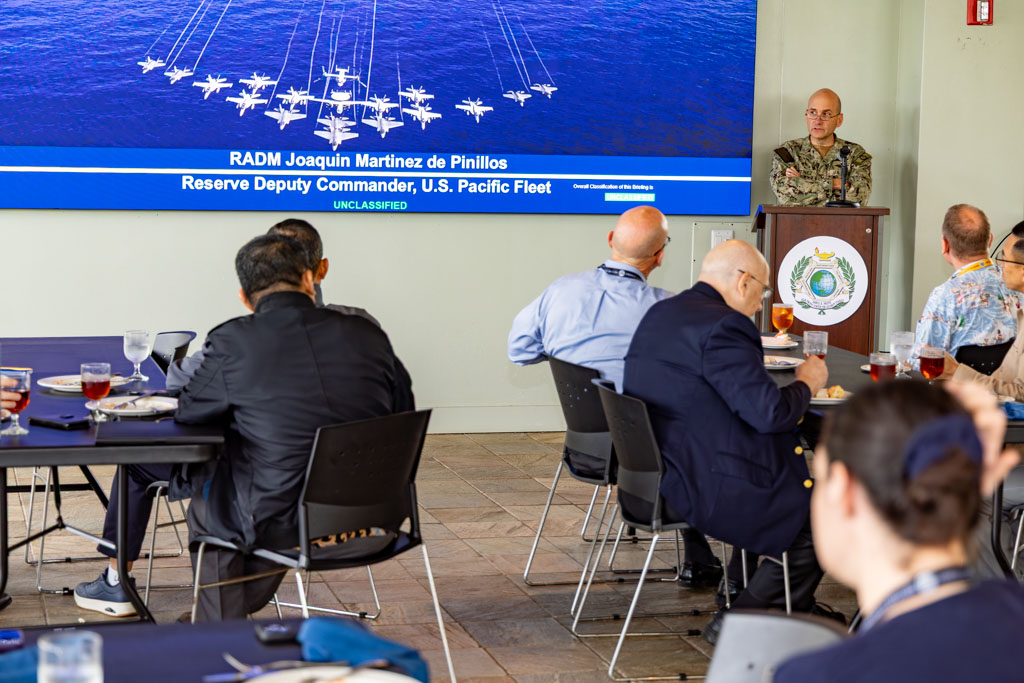 (Honolulu) – Security practitioners from nine locations completed the Asia-Pacific Orientation Course (APOC 14-2) today at the Asia-Pacific Center for Security Studies (APCSS).
(Honolulu) – Security practitioners from nine locations completed the Asia-Pacific Orientation Course (APOC 14-2) today at the Asia-Pacific Center for Security Studies (APCSS).
One hundred forty-one military and civilian Fellows attended the five-day course led by international doctorate-level faculty. Among the 141 Fellows, were eight APCSS staff, including Director Lt. Gen. (Ret.) Dan Leaf. The course enhanced attendees’ knowledge of critical socio-economic, military, political and cultural issues impacting the region’s evolving security relationships.
Fellows learned through a combination of lectures, seminars and 19 elective sessions focused on a variety of key topics. Among lecture titles were: “U.S. Foreign Policy and Diplomacy in the Asia-Pacific;” “Security Dynamics in South Asia;” and “Technologies Without Borders.” Electives centered on issues such as the Jammu/Kashmir conflict; public health and disease threats; and disaster paradigms.
“Our objective is to ensure attendees leave the APOC with a much greater understanding of the region’s security challenges as well as opportunities for multi-national cooperation,” said course manager Dr. Virginia Watson. “I believe the course prepared current and future leaders to play a role in enhancing Asia-Pacific stability,” she added.
A key emphasis point during the Sep 8 – 12 course was America’s declared “Rebalance” to the Asia-Pacific region. Faculty articulated the U.S.’ more concentrated effort to engage with current and potential allies in the region. Using the theme “Comprehensive Engagement,” faculty addressed the U.S. “rebalance” to Asia in terms of key regional actors, institutions, issues and engagement tools.
“The U.S. is identifying potentially new ways to adapt and transform its regional engagements in light of the area’s dynamic operating environment. Understanding the Asia-Pacific and its actors has never been more important for security practitioners,” Watson related.
Fellows were from Australia, Canada, New Caledonia, New Zealand, Singapore, South Korea, Taiwan, the United Kingdom and United States.
Australian Fellow Ronan Kaplan related, “My key take away from the course was the reality, importance, gravity and breadth of the rebalance to the Asia-Pacific. It was useful to be able to see the multiple channels through which the US Government is engaging the region and encouraging security.”
Ronan, a senior policy officer in the Australian Department of Defence, added, “The most informative session for (me) was the elective regarding China’s search for energy security…it represented a host of dynamics which will affect China and the wider region in the traditional security realm; and gave an insight into future possible non-traditional security challenges for other Asia-Pacific states.”
The APOC is one of six formal courses at the APCSS. The center is a Department of Defense institute that addresses regional and global security issues. Military and civilian representatives, most from the United States and Asia-Pacific nations, participate in a comprehensive program of executive education, professional exchanges and outreach events, both in Hawaii and throughout the Asia-Pacific region.
The Center supports the U.S. Pacific Command by developing and sustaining relationships among security practitioners and national security establishments throughout the region. APCSS’ mission is to build capacities and communities of interest by educating, connecting and empowering security practitioners to advance Asia-Pacific security. It is one of the Department of Defense’s five regional security studies centers.
Since opening in 1995, the Center has had more than 9,000 alumni representing over 122 countries and territories attend APCSS courses and workshops.
For more photos, see the APCSS Facebook page.
-END-









Leave A Comment